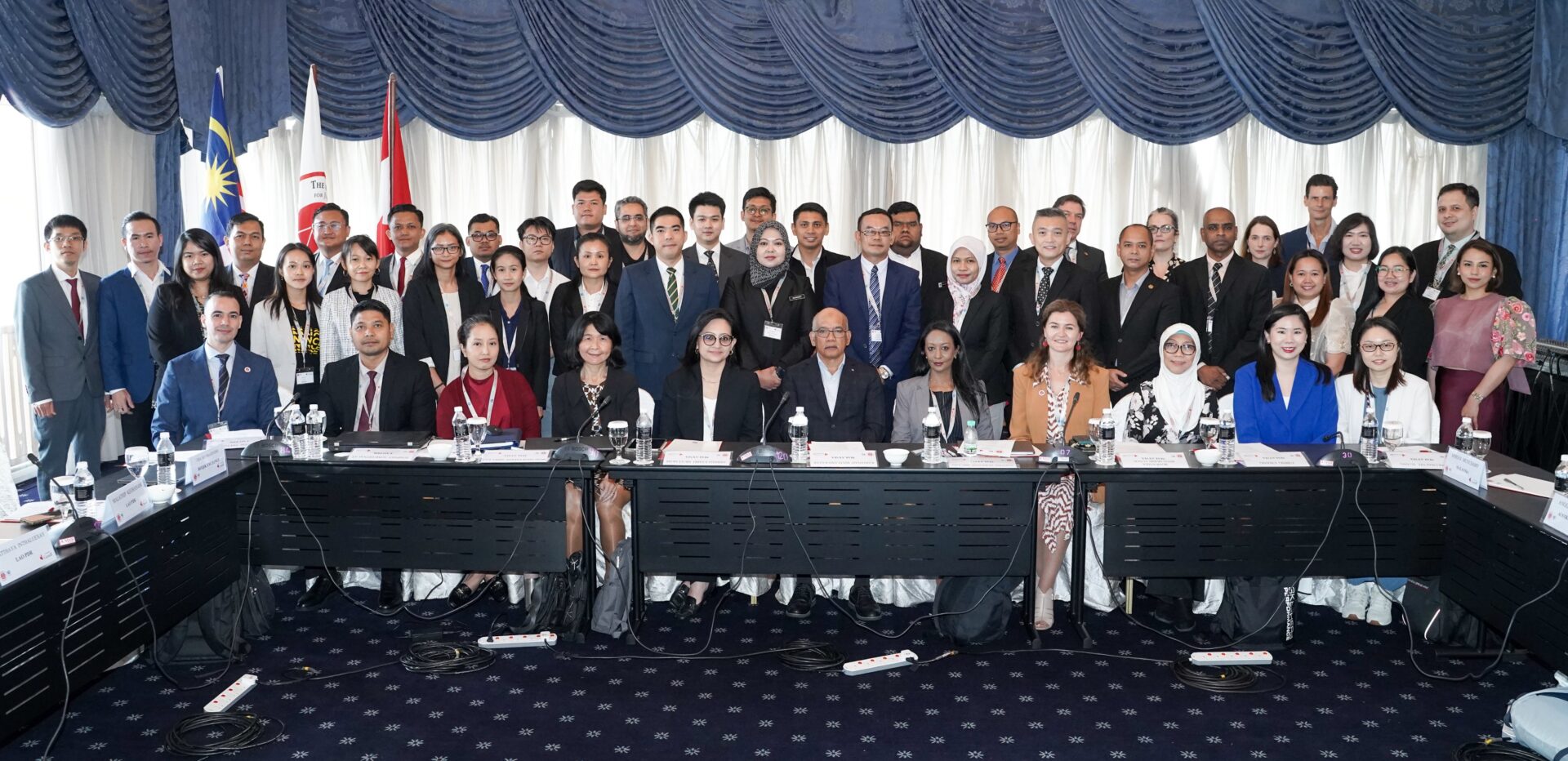
From 15-17 of April 2025, the IIJ held a regional meeting under the Canada Global Affairs-funded project focused on building capacity and improving cooperation mechanisms to counter the financing of terrorism (CFT) in Southeast Asia.
Following the official launch of the project in June 2024, the IIJ consulted with delegations from participating countries to identify their most pressing CFT priorities, and based on this consultations designed a series of workshops with a focus on improving institutional frameworks, regulations, and procedures.
The first regional workshop was held in Cebu, the Philippines, from 19-21 of November 2024 (Read here). It focused on human rights-compliant approaches to CFT and the risk-based implementation of revised FATF recommendation 8 concerning the non-profit sector. Building on this foundation, the second regional workshop took place this week in Kuala Lumpur, Malaysia and addressed the topic of mitigating terrorist financing risks associated with virtual assets, emerging payment methods and fintech.
Investigators, prosecutors, financial intelligence specialists and other CFT actors from Cambodia, Indonesia, the Lao PDR, Malaysia, the Philippines, Thailand, and Vietnam convened to exchange good practices and strengthen their capacity to detect, investigate, and prosecute terrorist financing involving the misuse of new and emerging technologies including features available through social media, content hosting and direct messaging services, online merchandise sales, crowdfunding, various virtual assets exchanges, stablecoins, gaming platforms, e-wallets, prepaid cell cards and mobile payments.
Important addition to the workshop was wide participation of the private sector working in the areas of blockchain analytics, informal money transfer systems, virtual assets, and fintech. The public-private dialogue explored the need to develop and implement risk-based regulation, monitoring and supervision to prevent the abuse of these technologies in line with applicable international frameworks, including the UN Security Council resolutions and guidance 2, and the FATF recommendations.
The training opened with remarks from IIJ Executive Secretary (ES) Steven Hill and YBhg. Dato' Sri Shamshun Baharin bin Mohd Jamil, Director General of Malaysia’s National Anti-Financial Crime Centre. ES Steven Hill underscored the importance of fostering regional collaboration and knowledge exchange, recognising the cross-border nature of these financial technologies.
